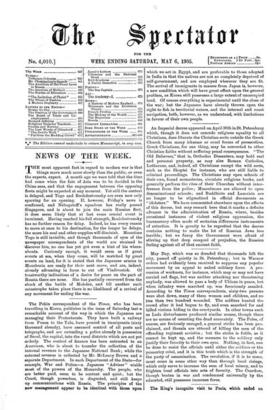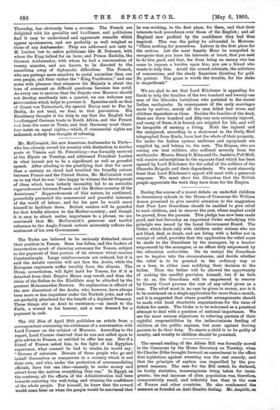Thursday, has obviously been a success. The French are delighted
with his geniality and kindliness, and politicians find it easy to understand and appreciate remarks which appear spontaneous, and are probably as well weighed as those of any Ambassador. They are addressed not only to M. Loubet, but to active politicians like M. Delcasse, with whom the King talked for an hour, and Prince Radolin, the German Ambassador, with whom he had a conversation of twenty minutes, and are known to be directed to the smoothing away of diplomatic difficulties. The French, who are perhaps more sensitive to social amenities than our own people, call their visitor the " King Pacificator," and one notes with pleasure that whenever his Majesty is about the tone of comment on difficult questions becomes less acrid. As every one is anxious that the dispute over Morocco should not develop needlessly into a quarrel, we can welcome any intervention which helps to prevent it. Speeches such as that of Count von Tattenbach, the special Envoy sent to Fez by Berlin, do not tend, we fear, to that prevention. His Excellency thought it his duty to say that the English had handicapped German trade in South Africa, and the French had done the same in Tunis, and that Germany must there- fore insist on equal rights,—which, if commercial rights are indicated, nobody has thought of refusing.











































 Previous page
Previous page